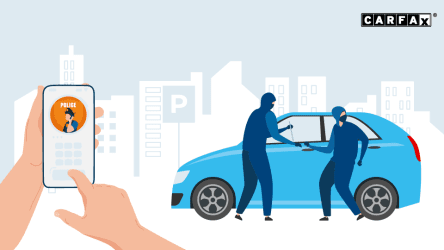A smart approach to acquire a solid vehicle while saving money is maybe by buying a Used Car. To make sure that you are investing wisely, you must take into account a number of important criteria before making your decision. The Top Things to Know Before buying a Used Car are covered in this post.
Finding a decent bargain is only one aspect of purchasing a used automobile. To make sure the car you’re thinking about is in good shape and matches your needs, it’s crucial to undertake careful research and evaluations.
Contents
- 1 Before buying a Used Car follow these Things:
- 1.1 What factors should I think about before buying a used car?
- 1.2 How can I set a fair price range for a used car?
- 1.3 Why is a vehicle history report important?
- 1.4 Should I buy from a business or an individual?
- 1.5 Why is a VIN important? What does it represent?
- 1.6 How important is a pre-purchase inspection?
- 1.7 What’s considered acceptable mileage for a used car?
- 1.8 Should I test drive the pre-owned car before buying it?
- 1.9 Can I negotiate the price of a used car?
- 1.10 Is a warranty available for used cars?
- 1.11 What paperwork is necessary for a used car purchase?
- 1.12 Is it wise to consider financing for a used car?
- 1.13 When purchasing a secondhand automobile, are there any unexpected expenses?
- 1.14 What’s the importance of a thorough test drive?
- 1.15 When purchasing a used automobile, am I able to trade in my old car?
Before buying a Used Car follow these Things:
Set Your Budget
Before browsing buying a Used Car, determine how much you’re willing to spend. This budget should include the purchase price and taxes, registration, insurance, and potential maintenance costs.
Research the Vehicle’s History
The vehicle identifying number (VIN) may be used to obtain a piece of thorough history information. Important details regarding the car’s past owners, accidents, title situation, etc., will be made clear in this report before buying a Used Car.

Determine Your Needs
Consider your lifestyle and needs when selecting to buy a Used Car. Are you searching for a high-performance automobile, a friendly-to-family SUV, or a small city car? Your choice should align with your daily requirements before buying a Used Car.
Inspect the Exterior and Interior
Check the car’s exterior carefully for evidence of rust, dents, and uneven paint. Examine the interior’s dashboard, seats, and interior as well as the infotainment system. Any inconsistencies indicate a lack of proper care before buying a Used Car.
Check Under the Hood
Open the hood and look for indications of leaks, rust, or worn-out belts in the engine. Checking fluid levels and the engine bay’s general cleanliness is a good idea as well.
Test Drive the Vehicle
To assess the performance of the vehicle, take it for a test drive. Please consider how it handles, brakes, accelerates, and any unusual noises. Test the vehicle in various driving conditions, including city streets and highways before buying a Used Car.
Evaluate Maintenance Records
It’s a good indicator if the vendor has kept accurate documents of the car’s service history. Regular maintenance shows that the vehicle has been well-maintained and reduces the likelihood of any underlying problems.

Consider Ownership Costs
Beyond the initial purchase price, calculate ongoing ownership costs. Fuel efficiency, insurance rates, and potential maintenance expenses should all factor into your decision before buying a Used Car.
Get a Professional Inspection
To do a comprehensive examination, take into account employing a qualified technician. They can identify hidden issues that might not be apparent during your initial assessment.
Review Vehicle’s Ownership Costs
Research the typical ownership costs for the specific make and model you’re interested in. This includes fuel efficiency, insurance rates, maintenance, and potential repair costs.
Negotiate the Price
Feel free to negotiate the price with the seller, especially if you’ve identified any issues during your assessments. Research similar models to ensure you’re getting a fair deal.

Understand the Documentation
Ensure that you understand all the legal documentation associated with the purchase. Titles, transfer forms, and any warranties should be reviewed carefully.
Finalize the Transaction
Once satisfied with the car’s condition and terms, finalize the transaction. Complete all required paperwork and payment processes as per the legal requirements.
Conclusion
Buying a used car demands careful consideration to avoid potential pitfalls. You may make an informed choice and leave your brand-new car with confidence by evaluating the vehicle’s history, condition, and ownership expenses.
FAQs
What factors should I think about before buying a used car?
Consider your budget, the vehicle’s ownership history, maintenance records, mileage, and your particular needs and preferences before buying a used automobile.
How can I set a fair price range for a used car?
Consider the cost of the automobile, taxes, registration fees, insurance, and probable maintenance costs while determining your budget. Make sure the sum is within your comfort range.
Why is a vehicle history report important?
A vehicle history report offers important details regarding the past of the automobile, such as accidents, title problems, and odometer anomalies. It aids in the decision-making process.
Should I buy from a business or an individual?
Each choice has benefits and drawbacks. Private sellers may provide lower pricing than dealerships, which frequently give guarantees and inspections. Based on your tastes and the amount of risk you are comfortable with, make your choice.
Why is a VIN important? What does it represent?
A “Vehicle Identification Number” (VIN), a special code specific to each automobile, is issued. It is used to learn about the vehicle’s past, verify the car’s identity, and check to see if it hasn’t been stolen or wrecked.
How important is a pre-purchase inspection?
An expert mechanic’s pre-purchase examination is essential. It helps identify potential issues that might not be evident during a test drive and gives you negotiating power.
What’s considered acceptable mileage for a used car?
A common estimate is 12,000 to 15,000 kilometers annually. High-mileage, properly maintained automobiles, however, can also be wise selections.
Should I test drive the pre-owned car before buying it?
Absolutely. You may evaluate the condition, comfort, and performance of the automobile by taking it for a test drive. Pay attention to noises, handling, brakes, and other aspects of driving.
Can I negotiate the price of a used car?
Yes, negotiation is common when buying a used car. Research the car’s market value, condition, and history to have a strong negotiating position.
Is a warranty available for used cars?
Some dealerships offer certified pre-owned (CPO) programs that provide warranties for used cars meeting specific criteria. Private sellers typically don’t offer warranties, so consider purchasing a separate warranty if desired.
What paperwork is necessary for a used car purchase?
Ensure you receive the title, sale bill, and warranty documents. Complete the necessary transfer of ownership paperwork according to your local regulations.
Is it wise to consider financing for a used car?
Financing can make a used car purchase more manageable. To get the best price, compare interest rates from several providers, including banks and credit unions.
When purchasing a secondhand automobile, are there any unexpected expenses?
Taxes, registration fees, insurance, and probable maintenance and repair bills are additional expenditures. Research and budget for these costs.
What’s the importance of a thorough test drive?
A thorough test drive helps you assess the car’s performance in various conditions. Pay attention to acceleration, braking, steering responsiveness, comfort, and unusual noises.
When purchasing a used automobile, am I able to trade in my old car?
Yes, many dealerships accept trade-ins. Research your current car’s value and negotiate the trade-in separately from the purchase.
